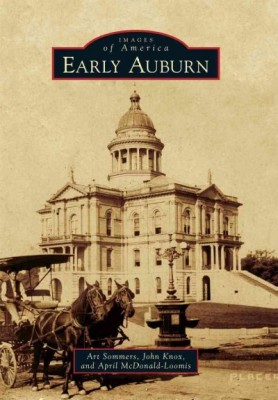| Early Auburn Contributor(s): Sommers, Art (Author) |
|
 |
ISBN: 1467132764 ISBN-13: 9781467132763 Publisher: Arcadia Publishing (SC) OUR PRICE: $22.49 Product Type: Paperback - Other Formats Published: April 2015 |
| Additional Information |
| BISAC Categories: - History | United States - State & Local - West (ak, Ca, Co, Hi, Id, Mt, Nv, Ut, Wy) - History | United States - State & Local - Middle Atlantic (dc, De, Md, Nj, Ny, Pa) - Photography | Subjects & Themes - Regional (see Also Travel - Pictorials) |
| LCCN: 2014945493 |
| Series: Images of America |
| Physical Information: 0.4" H x 6.4" W x 9.1" (0.70 lbs) 128 pages |
| Descriptions, Reviews, Etc. |
| Publisher Description: Located at the junction of gold-rich ravines, Auburn was the site of the first gold discovery in Placer County. Though the superficial gold was quickly panned out, by 1850, the town had become an important trading center. Auburn became a center for goods, services, entertainment, and a place for miners to "winter-over." More importantly, it became a transportation hub. As the county seat, Auburn's hotels, saloons, and merchants experienced a steady stream of customers as county residents came to town to deal with legal matters. Though plagued by numerous destructive fires, the citizens of Auburn rebuilt, and the town continued to thrive. This book will introduce the reader to some of the individuals who were instrumental in shaping Auburn as it grew into the town it is today. |
Contributor Bio(s): Sommers, Art: - Authors Art Sommers, John Knox, and April McDonald-Loomis are volunteers at the Placer County Archives and have done extensive research on the history of Auburn. They have teamed in the past to produce two self-guided walking tours for both Downtown and Old Town Auburn. This working relationship blossomed into the effort of creating this volume of images from the early days of Auburn. Drawing upon several public and private collections, the authors introduce the reader to portions of Auburn's lesser-known history. |